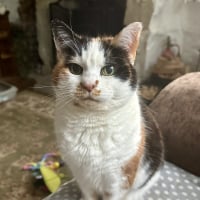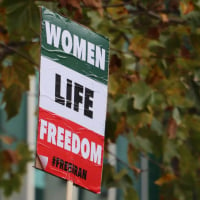Attention: Please take a moment to consider our terms and conditions before posting.
Terminology origins.

Sillybilly
Posts: 9,286
I thought thought this was quite entertaining and enlightening. A little education chaps.
Absolutely nothing to do with Covid, bin days, dog poo or fly tipping. It's a good one for the kids and maybe some of the not so young.
An interesting explanation of the origins of some old sayings and customs
They used to use urine to tan animal skins, so families used to all pee in a pot & then once a day it was taken & Sold to the tannery.......if you had to do this to survive you were "Piss Poor"
But worse than that were the really poor folk who couldn't even afford to buy a pot......they "didn't have a pot to piss in" & were the lowest of the low
The next time you are washing your hands and complain because the water temperature isn't just how you like it, think about how things used to be.
Here are some facts about the 1500s:
Most people got married in June because they took their yearly bath in May, and they still smelled pretty good by June.. However, since they were starting to smell . ...... . Brides carried a bouquet of flowers to hide the body odor. Hence the custom today of carrying a bouquet when getting Married.
Baths consisted of a big tub filled with hot water. The man of the house had the privilege of the nice clean water, then all the other sons and men, then the women and finally the children. Last of all the babies. By then the water was so dirty you could actually lose someone in it.. Hence the saying, "Don't throw the baby out with the Bath water!"
Houses had thatched roofs-thick straw-piled high, with no wood underneath. It was the only place for animals to get warm, so all the cats and other small animals (mice, bugs) lived in the roof. When it rained it became slippery and sometimes the animals would slip and fall off the roof... Hence the saying "It's raining cats and dogs."
There was nothing to stop things from falling into the house. This posed a real problem in the bedroom where bugs and other droppings could mess up your nice clean bed. Hence, a bed with big posts and a sheet hung over the top afforded some protection. That's how canopy beds came into existence.
The floor was dirt. Only the wealthy had something other than dirt. Hence the saying, "Dirt poor." The wealthy had slate floors that would get slippery in the winter when wet, so they spread thresh (straw) on floor to help keep their footing. As the winter wore on, they added more thresh until, when you opened the door, it would all start slipping outside. A piece of wood was placed in the entrance-way. Hence: a thresh hold.
In those old days, they cooked in the kitchen with a big kettle that always hung over the fire.. Every day they lit the fire and added things to the pot. They ate mostly vegetables and did not get much meat. They would eat the stew for dinner, leaving leftovers in the pot to get cold overnight and then start over the next day. Sometimes stew had food in it that had been there for quite a while. Hence the rhyme: Peas porridge hot, peas porridge cold, peas porridge in the pot nine days old. Sometimes they could obtain pork, which made them feel quite special. When visitors came over, they would hang up their bacon to show off. It was a sign of wealth that a man could, "bring home the bacon." They would cut off a little to share with guests and would all sit around and chew the fat.
Those with money had plates made of pewter. Food with high acid content caused some of the lead to leach onto the food, causing lead poisoning death. This happened most often with tomatoes, so for the next 400 years or so, tomatoes were considered poisonous.
Bread was divided according to status. Workers got the burnt bottom of the loaf, the family got the middle, and guests got the top, or the upper crust.
Lead cups were used to drink ale or whisky. The combination would Sometimes knock the imbibers out for a couple of days. Someone walking along the road would take them for dead and prepare them for burial.. They were laid out on the kitchen table for a couple of days and the family would gather around and eat and drink and wait and see if they would wake up. Hence the custom of holding a wake.
England is old and small and the local folks started running out of places to bury people. So they would dig up coffins and would take the bones to a bone-house, and reuse the grave. When reopening these coffins, 1 out of 25 coffins were found to have scratch marks on the inside and they realized they had been burying people alive... So they would tie a string on the wrist of the corpse, lead it through the coffin and up through the ground and tie it to a bell. Someone would have to sit out in the graveyard all night (the graveyard shift.) to listen for the bell; thus, someone could be, saved by the bell or was considered a dead ringer.
And that's the truth....Now, whoever said History was boring?
33
Comments
-
Very interesting thankyou.1
-
Great stuff.1
-
Sorry but your 'raining cats and dogs' theory is as true as Charlton being in the play off spots.0
-
and the 'baby' and 'June' things are a bit rubbish, too.0
-
When Crystal Palace were formed in 1905, their fans were know as Palace c*nts. Unfortunately, the reason why was been lost in the annals of time. However, the behaviour and general demeanour of their fans ever since, has resulted in the name sticking and becoming recognised as an official term for them.13
-
I simply pass on an article I found entertaining. I cannot speak for its veracity. I did enjoy it thoughMrWalker said:Sorry to piss on your cornflakes, but your 'raining cats and dogs' theory is as true as Charlton being in the play off spots.3 -
Silly Billy was a type of clown common at fairs in England during the 19th century. They were also common in London as a street entertainer, along with the similar clown Billy Barlow. The act included playing the part of a fool or idiot, impersonating a child and singing comic songs.
1 -
Back in the dark ages there was a saying.
Snot gobling Wankpuffin Shitweasel stripy Nigel wankers.
Many centuries later people who are far cleverer than me have deciphered this to mean pond life scum from Croydon.
Not sure what the fuck I'm going on about as I'm pissed.
Anyway happy Xmas to you all xx4 -
Cock & Bull story
believed to come from stony Stratford Milton Keynes Buckinghamshire, they are two coaching inns in the same road the cock & the bull & the saying comes from a pissed version of Chinese whispers where a story would be told in one pub & by the time a few ales had been sunk & the (by this time greatly fabricated) story was being told in the next pub it resembled nothing like the original story & was known as a cock n ball story .
could just be a load of cock n balls but I’ve been in both & they are good boozers & proud to lay claim to the saying, prefer the bull myself3 -
At sixes and sevens.
Two City of London guilds - The Merchant Tailors and The Skinners were both founded in 1327. For years they were in dispute regarding their seniority in the list of guilds. In 1484 the Lord Mayor ruled that they would swap sixth and seventh place and to this day that is still done each year.
Cheap at half the price.
Sounds silly. But originally cheap (or cheep) simply meant goods. Hence Cheapside in the City which was a market place - and still is really. So it's just a market-traders cry from old school Del Boys.2 -
Sponsored links:
-
A perfect role for Elfie!guinnessaddick said:Silly Billy was a type of clown common at fairs in England during the 19th century. They were also common in London as a street entertainer, along with the similar clown Billy Barlow. The act included playing the part of a fool or idiot, impersonating a child and singing comic songs.0 -
🎶 I’m only a tiny chimney sweep but I’ve got an enormous brush.🎵1 -
There are a lot of stories about how people in the past were terrified of being buried alive and thus, they installed bells on their graves, so if they woke up after burial, their rings would be heard, and they could be dug up and saved. The stories go on to say that people would be employed to stay at the graveyard overnight, in case these bells started ringing and thus, they would work a "graveyard shift." If they found someone ringing, that person would be "saved by the bell" and be a "dead ringer," meaning that they looked just like a dead person, but were actually alive.I'm afraid they are all urban myths as well - an email circular in 1999 was distributed widely - entitled 'Life in the 1500s'. None of the contents had any basis in historical fact.
1 -
One that is true.When a jockey was called to the Stewards' Room to explain an alleged breach of the rules they were not allowed to sit down but instead had to stand on a carpet in front of the stewards' desk. Hence the idiom 'On the carpet' meaning being in a position of being reprimanded by one in authority. More common use is 'being carpeted'.1
-
A fascinating historical fact is that in 1582 the phrase 'urban myth' was first added to the Collins School Dictionary.5
-
L'Addique ("Ready" in Norman French) was the motto of the Spencer Percival family who lived in Charlton House. Their coat of arms was a hand holding a drawn sword IE ready to fight.3
-
When London ran out of space to bury its dead, they looked down the river to find suitable sites. This gave us Tilbury and Gravesend. Ironically, in much more recent times the first local borough to officially run out of burial space was Gravesend.2
-
Ships coming back from a voyage with dead on board would have to leave them further down the estuary and not bring diseases into the City.Stig said:When London ran at of space to bury its dead, they looked down the river to find suitable sites. This gave us Tilbury and Gravesend. Ironically, in much more recent times the first local borough to officially run out of burial space was Gravesend.In those days, the Thanes has two ends:
the Born end where it was deemed to start and the Graves end where it was deemed to finish.2 -
There is a road separating Woolwich Common from the Army Barracks.
Squadies on parade would generate large crowds of locals who would laugh at them hence the road being called Ha Ha Road5 -
Why wouldn’t the dead on ships be buried at sea ?1
-
Sponsored links:
-
Understand, but whoever created the post started by saying, 'a little education' and ended with 'and that's the truth'. The three phrases I know in the list are 100% made up.Sillybilly said:
I simply pass on an article I found entertaining. I cannot speak for its veracity. I did enjoy it thoughMrWalker said:Sorry to piss on your cornflakes, but your 'raining cats and dogs' theory is as true as Charlton being in the play off spots.
Perpetuating myths is fine and fun, and the basis of a few religions. My Dad still believes that Crinkle Cut crisps are a Chinese invention after we convinced him of this one weekend after watching The Fast Show.
2 -
Before WW1 one of Charlton's top strikers was James South.
Unfortunately he lost one of his feet in a work accident at Siemans factory so converted to goal keeper.
"Lucky Jim" as he was known to fans (the inspiration for Charlton fan Kingsley Amis' book) then lost his sight in a pub fight but carried on playing in goal. Jim said he could play by sense of smell.
When Charlton went professional Jimmy became groundsman at the new Valley but died in a lawn mower incident in 1925.
In recognition of his great service the club named the open end at the Valley "The Jimmy South Stand".
With @Tom_Hovi and @SE7toSG3 I'm writing a biography of Jim's life.6 -
Lucky Jim indeed0
-
Ha HaHenry Irving said:There is a road separating Woolwich Common from the Army Barracks.
Squadies on parade would generate large crowds of locals who would laugh at them hence the road being called Ha Ha Road
It's the ditch beside the road.1 -
3
-
A Ha Ha is a ditch that is obscured from a view. Often used in gardens of stately homes to prevent deer approaching the front of the house but not noticeably visible and spoiling the line of the view of the lawn.0
-
You've got it the wrong way round.ShootersHillGuru said:A Ha Ha is a ditch that is obscured from a view. Often used in gardens of stately homes to prevent deer approaching the front of the house but not noticeably visible and spoiling the line of the view of the lawn.
Later a ditch was dug to keep out the locals and was called the Ha Ha ditch after Ha Ha Road
The name was then used for other similar ditches and became a generic name.0 -
Gotcha0
-
Railway stations in Russia are called Vauxhall as Russian engineers based their designs on the south London station they had visited.0
-

0












